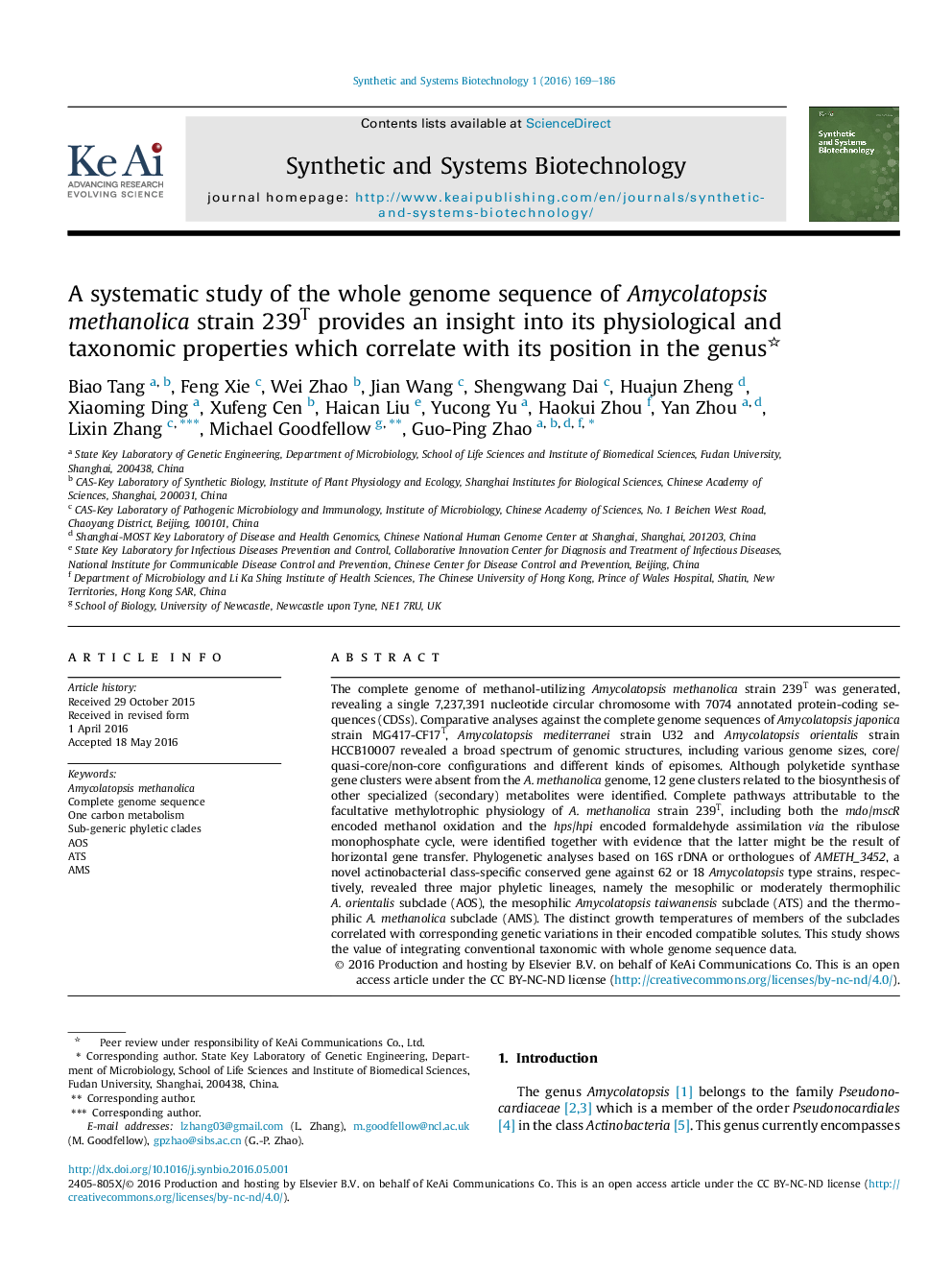| Article ID | Journal | Published Year | Pages | File Type |
|---|---|---|---|---|
| 5522881 | Synthetic and Systems Biotechnology | 2016 | 18 Pages |
The complete genome of methanol-utilizing Amycolatopsis methanolica strain 239T was generated, revealing a single 7,237,391 nucleotide circular chromosome with 7074 annotated protein-coding sequences (CDSs). Comparative analyses against the complete genome sequences of Amycolatopsis japonica strain MG417-CF17T, Amycolatopsis mediterranei strain U32 and Amycolatopsis orientalis strain HCCB10007 revealed a broad spectrum of genomic structures, including various genome sizes, core/quasi-core/non-core configurations and different kinds of episomes. Although polyketide synthase gene clusters were absent from the A. methanolica genome, 12 gene clusters related to the biosynthesis of other specialized (secondary) metabolites were identified. Complete pathways attributable to the facultative methylotrophic physiology of A. methanolica strain 239T, including both the mdo/mscR encoded methanol oxidation and the hps/hpi encoded formaldehyde assimilation via the ribulose monophosphate cycle, were identified together with evidence that the latter might be the result of horizontal gene transfer. Phylogenetic analyses based on 16S rDNA or orthologues of AMETH_3452, a novel actinobacterial class-specific conserved gene against 62 or 18 Amycolatopsis type strains, respectively, revealed three major phyletic lineages, namely the mesophilic or moderately thermophilic A. orientalis subclade (AOS), the mesophilic Amycolatopsis taiwanensis subclade (ATS) and the thermophilic A. methanolica subclade (AMS). The distinct growth temperatures of members of the subclades correlated with corresponding genetic variations in their encoded compatible solutes. This study shows the value of integrating conventional taxonomic with whole genome sequence data.
